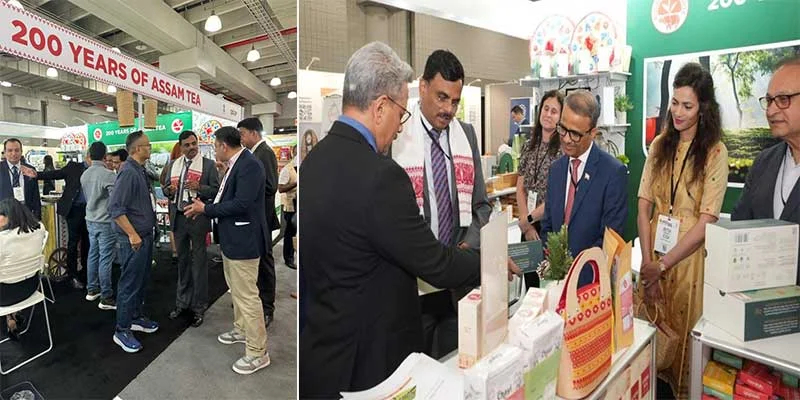Tuesday, 24 February 2026

In a strategic push to position Assam as a global investment and trade destination, the Indian Consulate in New York recently hosted a high-profile series of events spotlighting the state’s economic strengths, cultural richness, and, most notably, the global appeal of Assam Tea. The events—framed around a B2B Buyer-Seller meet and a roundtable on business and investment—drew significant attention from U.S. industry leaders, trade stakeholders, and cultural ambassadors, marking a key diplomatic moment for India’s Northeast.
Assam’s chief secretary Ravi Kota and Consul General Binaya S. Pradhan led the conversation at the business roundtable co-hosted by the US-India Strategic Partnership Forum, emphasizing Assam’s emerging role in India’s growth narrative. “The event highlighted Assam’s immense potential in trade, tourism and investment,” said the Consulate, spotlighting infrastructure upgrades, ecological tourism, and agro-processing as sunrise sectors in the region.
Yet, the star of the showcase was unmistakably Assam Tea.
In a special B2B Buyer-Seller meet dedicated to celebrating 200 years of Assam Tea, Indian producers and exporters engaged directly with leading U.S. buyers in an intimate setting at the consulate. From curated tea-tasting sessions to insights from industry veterans, the event served as both a cultural celebration and a serious trade catalyst. Arijit Raha, Secretary of the Indian Tea Association, delivered a compelling narrative of the historical India-U.S. tea trade relationship—bridging the legacy of the past with the urgency of future markets.
With tea sommeliers on hand to guide buyers through the region’s signature bold, malty brews, the gathering didn’t just present Assam Tea as a commodity—it reintroduced it as an experience. “The event fostered valuable connections between Indian producers and US buyers, strengthening trade ties,” noted the Consulate, underscoring the diplomatic and commercial ambition behind the gathering.
The presence of celebrated chef Vikas Khanna added a nuanced touch of culinary diplomacy. As Assam’s flavors and fragrances filled the room, so too did new possibilities for cross-border trade partnerships and tourism collaborations.
For Assam, this was more than an export pitch—it was a soft-power moment. A chance to bring the state’s legacy crops and untapped landscapes to the center of global commerce, wellness narratives, and cultural tourism. For the U.S., it was a reminder that India’s Northeast is not just a frontier—but a future.